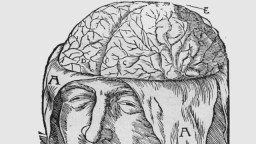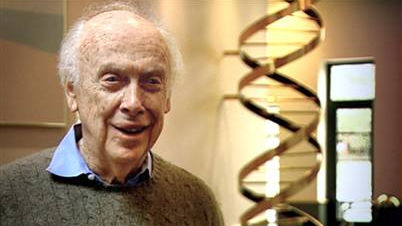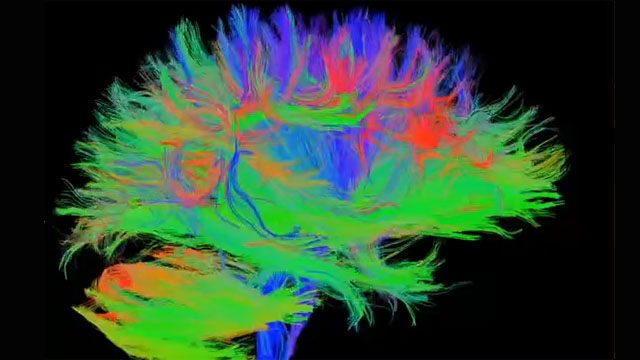The headline for this entry sounds more dramatic than it is, but one of the last structures in the ill-fated Royal Gardens subdivision on the big island of Hawai’i finally […]
Search Results
You searched for: Structure
The efforts of tens of thousands of players in an online game provided a rich, new set of search strategies for the prediction of protein structures. “Nature” explains the implications.
When I first launched my blog in March, you may remember me writing about a blog post entitled “IMAX Hubble 3D & The James Webb Space Telescope.” The new telescope […]
Since its invention in 1859, the escalator has been the most widely used mode of non-vehicle urban transpiration, ubiquitous everywhere from airports to shopping malls to subways. It is estimated […]
We still don’t know a lot about the two package bombs from Yemen that were discovered the other day. Although I’m pretty certain that the next time I go to […]
After spotlighting the Lunartic bike concept, here is another noteworthy finalist in designboom and Seoul Design Foundation’s Seoul Cycle Design Competition. Bikoff by Argentinian industrial design student Marcos Madia takes […]
“How do you get your hands on power? And how do you keep hold of it once you’ve got it?” The Economist says that management gurus are surprisingly disappointing on this subject.
Scientists have developed a video game that allows players to predict and build protein structures that have stumped computers because of their inadequate spatial reasoning.
“Up and down society, people are moving away from commercial, productive activities and toward pleasant, enlightened but less productive ones.” David Brooks on economic change.
“The loss of linguistic diversity means permanently shutting the door on a vast wealth of potential scientific knowledge.” Obit’s Axel Rose on the downside of English as lingua franca.
On November 7th, Pope Benedict XVIconsecratedAntoni Gaudí’s weirdly wonderful masterpiece of religious architecture, the Sagrada Família (shown above). The Catholic Church tends to distrust anything modern these days, so seeing it […]
“Brain imaging is not a very good way to test subtle distinctions [in the brain]…it’s like trying to find out something about New York City by studying New York State,” […]
The sub-title to this piece is “Patient-Advocates as Harbringers of Hope in the Health Care System.” n Disclaimer: I am a Libertarian-Progressive. I generally trust markets more than I trust […]
Economic researchers are uncovering the chemical triggers in our brains that spark feelings of trust—and using their findings to better understand how markets work.
While our own personal histories happen one event at a time, our brains make sense of our lives by stringing these events together in an structured way.
▸
6 min
—
with
One of the most wonderful things about the emerging global superbrain is that information is overflowing on a scale beyond what we can wrap our heads around.
“Policies that generate more widely shared prosperity lead to stronger and more sustainable economic growth—and that’s good for everyone.” Robert Reich on how to fix the recession.
For all the obstacles President Obama has faced—the terrible economy and the bitter, partisan bickering—he managed to accomplish much of what he set out to accomplish. He implemented a recovery […]
Dr. James Watson can’t help but speak his mind. And this has gotten the co-discoverer of DNA’s double-helix in trouble in the past. He has been called, among other things, […]
Afters months of waiting, I have finally been able to get my act together enough to post the answers to questions you posed to Dr. Adam Kent. If you remember […]
Yesterday, Howard University hosted a panel discussion on “The Poetry of Science” featuring Neil deGrasse Tyson and Richard Dawkins. Among subjects, Tyson and Dawkins discussed the prospects for life on […]
As metaphors for the mind go, one researcher at Stanford says our brains function much more like search engines than computers. We are more probabilistic than deterministic, she says.
German city planners are hoping that applying “environmental psychology” will help make Hamburg’s huge new urban development a success.
The Center for American Progress has released a valuable analysis of the factors that account for the huge ideological imbalance in political talk radio. Here’s what they pinpoint as the […]
Who gets to say who owns our libraries, and what are the risks embedded in making a library profit-driven? The New York Times choice to give Library Systems and Services […]
We’ve found out the winner of 2010 Pliny for volcanic event of the year yesterday, so now let’s look back at the entire year in volcanic activity. It was a […]
It is a cliché that the brain is the “largest sex organ,” but the repetition of the phrase doesn’t make it any less true.
The fact that technological power comes in smaller, faster and cheaper objects is a very important observation that underlies many of the phenomena around us today.
There’s no such thing as a verbatim, facsimile memory, says USC neuroscientist Antonio Damasio. When we reconstruct events in our minds, we are pulling together set sequences of specific details stored in different parts of the brain.
Sexual violence against women in the African nation has become an “incredibly inexpensive tool for controlling and eviscerating the population,” says Eve Ensler, founder of the advocacy group V-Day.

















